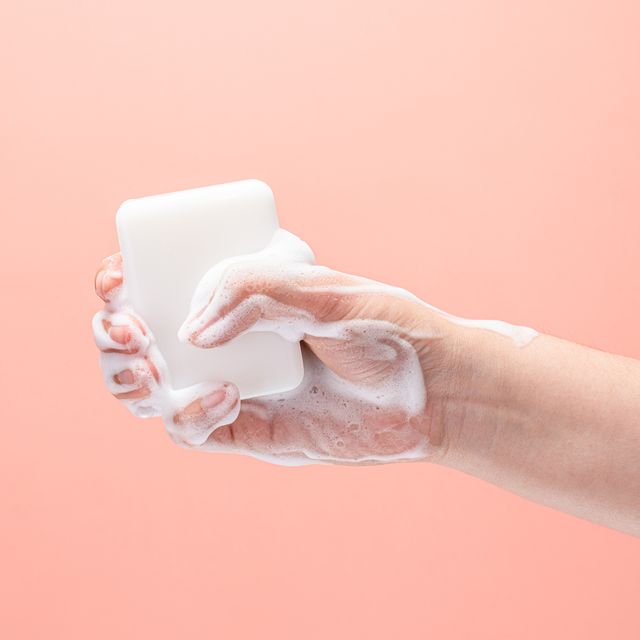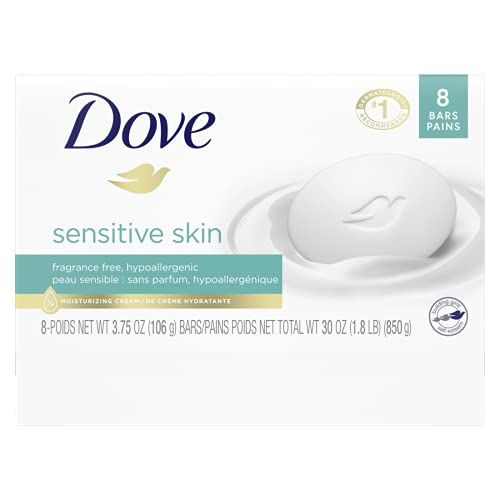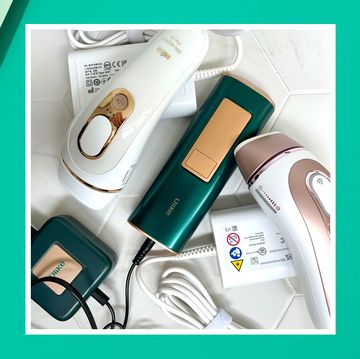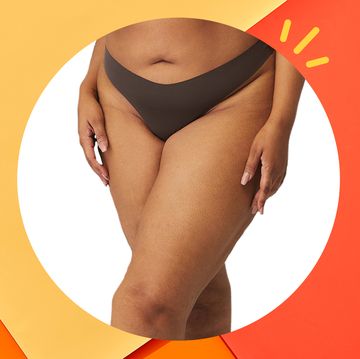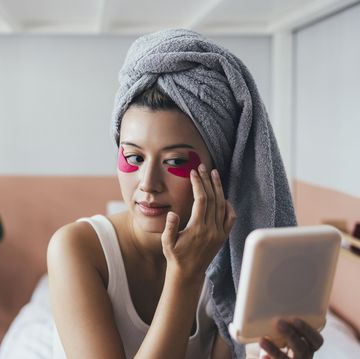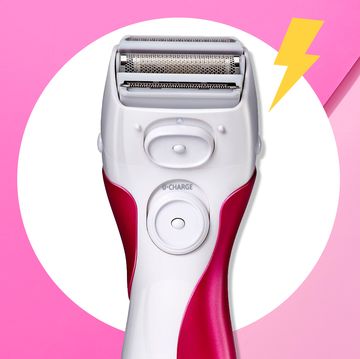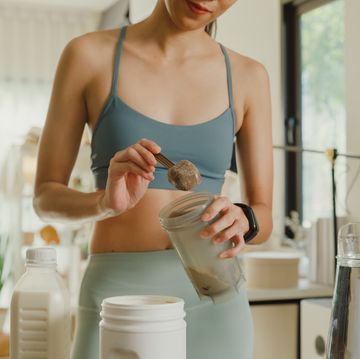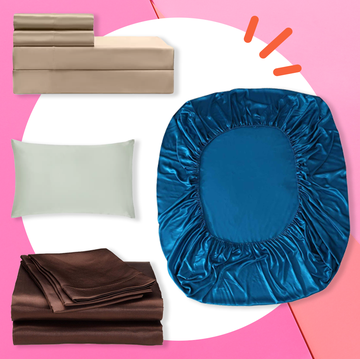Removing make-up at night before bed is a no-brainer. Thanks to expert advice, it's now also common knowledge that ears are self-cleaning and ditching Q-tips has become second nature. How to clean your vagina remains a bit of a mystery, though. What's the best way to go about it and do you need a special cleanser for it? What about douching and steaming? Let’s talk about down there care.
First, let's get to know all the parts involved—mainly, the vagina and vulva. The vulva is the outer part of the female reproductive system and includes two skin folds: the labia majora, or outer skin folds, and the labia minora, the inner skin folds. They protect the opening of the vagina. The vagina, on the other hand, is the closed muscular canal that extends from the vulva to the neck of the uterus (or cervix).
The vagina is where the lining of the uterus is shed during menstruation, penetration occurs during sex, and a baby descends during childbirth. Yeah, the vagina does a lot. Clearly, that means it needs some extra attention, right? Here's all you need to know about caring for your vagina brought to you by trusted ob-gyns.
Do you really need to clean your vagina?
Your vagina actually does a pretty good job of taking care of itself. "The vagina has really great mechanisms within it to keep it clean and have its own little healthy 'ecosystem,'" says Jessica Shepherd, MD, a gynecologist at the University of Illinois at Chicago and founder of Her Viewpoint.
The vagina cleans itself by producing secretions that wash away blood, semen, some infections, and vaginal discharge, explains Alexandra Bausic, MD, a board-certified ob-gyn and sex educator at Let's Talk Sex.
The outer part of the vagina, the vulva, definitely needs a little extra TLC, between bathroom runs, sweaty workouts, and thongs. Plus, it comes into contact daily with your underwear.
So, how often do you need to do it?
Stick to cleaning once a day. If you wash any less, you might not be getting rid of the buildup of sweat and secretions; if you do it any more than once a day, you could be disrupting the delicate balance of your vaginal area.
Using a washcloth or just your hands is better than scrubbing with a loofah, which can create small tears and expose you to infection (and even increase your risk of STDs if you have unprotected sex). Again, keep an eye out for itching, dryness, discharge changes, and yeast infections. Over-cleansing can cause these annoying symptoms, too.
Then, what's the best way to clean your vagina?
If you are wondering whether or not you need to buy that feminine wash, you can put your wallets away. “There are normal bacteria in the vagina. Any time you put products into the vagina, you disturb the healthy bacteria, which can lead to an overgrowth of unhealthy bacteria,” says Laura Laursen, MD, an ob-gyn at Rush University Medical Group in Chicago.
Typically, the vagina has a pH level of about 3.5 to 4.5 (pH is measured on a scale of zero to 14). Hygiene products like body wash generally have a pH of about eight and it can throw your pH balance out of whack, leading to itchiness, irritation, and odor.
"Unscented soaps are always better because they don't have [fragrances] that could be irritants," says Dr. Shepherd. What's more, bar soap is generally a better choice than body wash because it usually doesn't have as high of an alcohol content or as much of a scent, she adds. Just make sure to keep an eye out for constant itching, dryness, a change in discharge, or an increase in yeast infections—these are signs that you may need to use a more delicate soap.
A product with a pH over seven is basic and under seven is acidic, Dr. Bausic explains. Whatever you put on the external vulvar area should be not too high or low on that scale and hypoallergenic. A good tip is to check the label for the words "dermatologist- or gynecologist-tested." Anything that goes near the delicate area between your legs should be designed specifically for it, she says. Some doctor-approved options include Vagisil and Dove.
Should you worry about the smell?
Many of us try to mask body odors, which makes sense in some cases. That smell around your nether regions is not something bad, though, and you don't have to hide it with artificial scents. “The normal smell of your vagina is a good one. All other strategies to make the vagina smell better are not okay," says Dr. Bausic. "The human body knows its roles and functions, so try not to interfere with it by using chemical products in vain.”
Vaginal odor even offers some perks in the bedroom. “Your vagina secretes pheromones, which are substances that can be detected by the olfactory system of your partner, so your natural vaginal smell can be highly attractive while having sex,” explains Dr. Bausic. Who knew?
That said, you should be able to tell when something's off. Every woman should be familiar with her natural smell and when it's different, slightly stronger, or smells fishy or rotten, notes Dr. Bausic. These combined with changes in vaginal discharge mean it is time to see an ob-gyn and ask for an STI test, she adds.
You should also pay your gynecologist a visit if you have burning, itching, pain during intercourse, pain during urination, or swelling around the vaginal area.
What about douching and steaming?
Douching is cleaning or washing out the vagina with water or a mixture of other fluids, such as H2O plus vinegar, baking soda, or iodine. The problem is when you scrub down the inside, you're getting rid of both the good and bad bacteria. “If you take out the good bacteria, the bad bacteria has more opportunity to overtake the vagina," says Dr. Shepherd. This can lead to yeast infections and other issues like bacterial vaginosis, another type of infection. Yikes!
The same goes for vaginal steaming, which is also known as V steaming or yoni steaming. This is where you sit over a bowl of steaming, herb-infused water. There is no scientific evidence to support that it's good for you in any way.
Both douching and vaginal steaming can also expose you to a higher risk of STIs and UTIs as well as painful sex because they can cause micro-tears in the sides of the canal, says Dr. Bausic.
Some people like to douche or steam because it helps them feel cleaner and more confident. Overuse can really backfire, though. “If you feel like doing it, do them once every two weeks, especially after your period or having sex,” recommends Dr. Bausic.
What else can you do to make sure your vagina is clean and healthy?
Avoid unnecessary cleaning products and wear breathable cotton underwear, Dr. Laursen shares. It is also best to change out of sweaty panties and clothes right after a workout, as a buildup of sweat can irritate your lady bits.
If you like lacy or sexy undergarments, limit your time in them. “Try to wear the fun and sexy lingerie only while having sex,” says Dr. Bausic. Ditch the silk or synthetics because no matter how pretty they look, no bacterial or yeast infection is worth it, she adds. The same goes for sleep wear. Choose a comfortable style and allow plenty of air to circulate around there, recommends Dr. Bausic.
Remember, keeping your vagina healthy goes beyond hygiene. “It is important to know your sexual partners and avoid getting an STI from new ones,” says Dr. Bausic. She also recommends going once a year to your ob-gyn for your well woman exam.
Final verdict on how to clean your vagina? Just don’t. "The beautiful part of the vagina is that it is physiologically built to take care of itself," says Dr. Shepherd.
The bottom line: In general, the less you do to your vagina from a cleansing standpoint, the better.
Alexa is a Denver-based contributor who covers all things lifestyle, wellness, travel, home, and beauty. When she's not writing, you can find her sweating it out at boxing or Pilates, planning her next travel adventure, or drinking red wine.
Ashley Martens is a wellness writer based in Chicago. With a lifelong passion for all things health and wellness, Ashley enjoys writing about topics to help people live happier and healthier lives. With a foundation in fitness, food, and nutrition, Ashley covers it all including sexual health and travel topics. Ashley is also a NASM-certified personal trainer and group fitness instructor.
